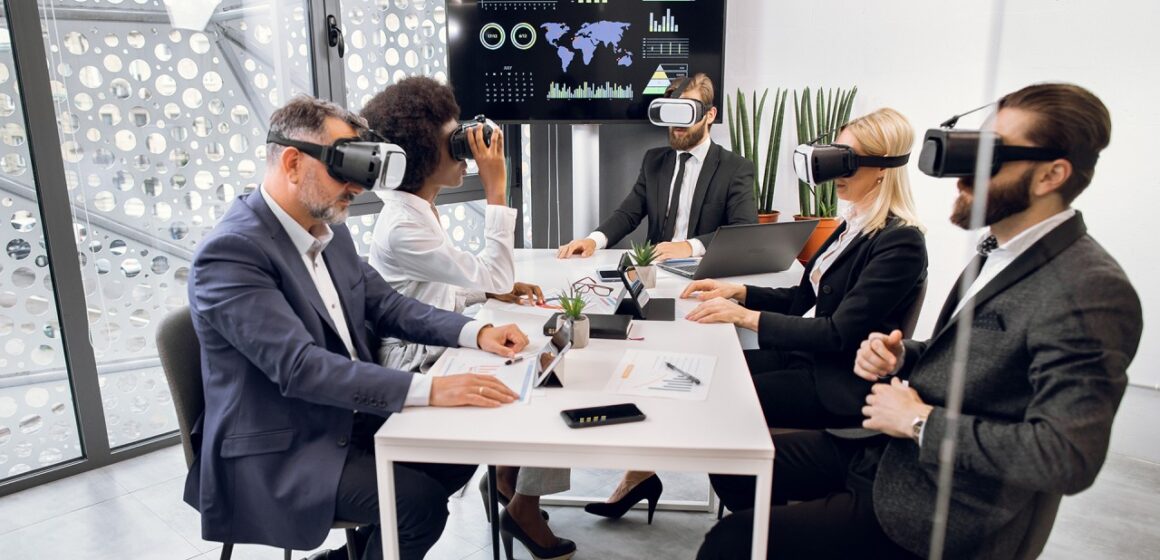Introduction
The concept of the metaverse has rapidly gained momentum in recent years, with tech giants investing billions into its development. As a virtual, interconnected digital universe, the metaverse has the potential to reshape both social and business interactions. From virtual workspaces to immersive social experiences, this emerging technology is changing how people engage with one another and conduct business.
What is the Metaverse?
The metaverse is a collective digital space that blends augmented reality (AR), virtual reality (VR), and the internet to create immersive environments. Users interact through avatars, experiencing digital worlds that mimic real-life interactions. Technologies such as blockchain, artificial intelligence (AI), and 5G connectivity are driving the development of the metaverse.
Social Interactions in the Metaverse
The metaverse is revolutionizing social experiences, providing new ways for people to connect and communicate.
Virtual Social Spaces
- Platforms like Horizon Worlds and Decentraland offer virtual environments where users can interact, attend events, and explore digital landscapes.
- Social VR enables real-time communication, reducing the need for physical meetings and enhancing digital engagement.
Online Communities and Digital Identity
- Users create personalized avatars, fostering unique digital identities.
- Decentralized social networks allow for greater user control over content and interactions.
Business and the Metaverse
Businesses are leveraging the metaverse to enhance operations, marketing, and customer engagement.
Virtual Workspaces and Collaboration
- Companies like Meta and Microsoft are developing virtual offices where employees can collaborate in immersive digital environments.
- Remote work is becoming more interactive, bridging the gap between physical and digital office spaces.
Marketing and Customer Engagement
- Brands are creating virtual storefronts and experiences to engage customers.
- Immersive advertising and interactive campaigns allow businesses to connect with audiences in innovative ways.
Digital Commerce and NFTs
- The rise of digital goods and virtual real estate is creating new revenue streams.
- NFTs (non-fungible tokens) enable ownership of virtual assets, from artwork to real estate.
Challenges and Concerns
Despite its potential, the metaverse presents challenges and concerns that must be addressed.
Privacy and Security
- Data privacy remains a significant concern, with increased risks of data breaches and identity theft.
- Secure authentication and encryption protocols are essential for protecting user information.
Accessibility and Inclusion
- The high cost of VR hardware and internet connectivity may limit access to the metaverse.
- Efforts are needed to ensure inclusivity and equal opportunities for participation.
Ethical and Psychological Considerations
- Prolonged virtual interactions may impact mental health and social behavior.
- Ethical concerns arise regarding digital ownership, content moderation, and online harassment.
The Future of the Metaverse
The metaverse is still evolving, with significant advancements expected in the coming years.
Technological Developments
- AI-driven virtual assistants and realistic avatars will enhance user experiences.
- Improved VR/AR hardware will make interactions more seamless and lifelike.
Business and Economic Impact
- The metaverse economy is projected to grow exponentially, influencing industries ranging from entertainment to real estate.
- Companies must adapt to this digital transformation to stay competitive.
Conclusion
The metaverse is set to redefine social and business interactions, offering endless possibilities for communication, collaboration, and commerce. While challenges exist, continued innovation and ethical considerations will be key in shaping a metaverse that benefits individuals and businesses alike.


Leave a Reply